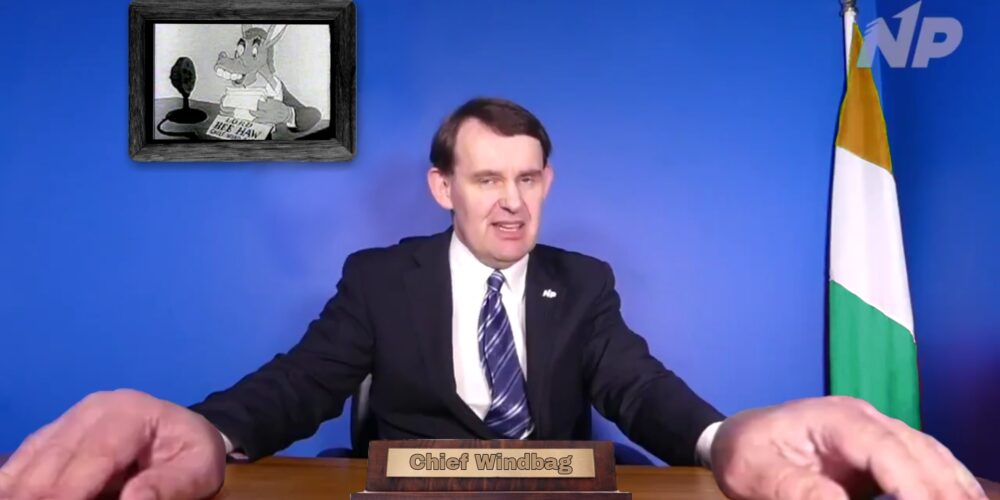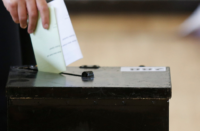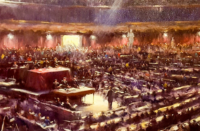The rise of the Irish far-right has finally become a media issue. Following far-right arson attacks on proposed refugee centres and assaults on election workers from parties believed to be critical of capitalism, RTÉ has pushed the issue of migration towards the top of its current affairs agenda, to the point where it is now a major election issue according to pollsters.
The right has used the genuine anger and frustration existing within working class communities with the realities of life under capitalism in an attempt to build a political base. They offer no criticism of capitalism, nor of Ireland’s position within the imperialist system. Their support for the existing property relations was shown in an incident in Cork, where they threatened a group who were protesting against the ending of the partial ban on evictions.
Fascism in Italy came into existence during a revolutionary upsurge, and they were employed by the capitalist class to attack a militant working class and both the Communist and Socialist parties. Ireland is not in a revolutionary or pre-revolutionary situation and in the General Election in the 26 counties, due within the next 8 months, none of the possible governing coalitions will present an anti-capitalist programme. There is no immediate threat to capitalism in Ireland, so why the growth of the far-right?
While there is no immediate threat to capitalist rule in Ireland, the system is not 100% stable. The existing international system, based on the hegemony of US-led imperialism, is facing growing economic and political challenges. Climate change is putting food security in Ireland and Europe at risk. Historically, food shortages have been the catalyst for revolutionary change in many societies. Some within the ruling class may believe that their continued rule depends on a battle-hardened fascist movement.
In the meantime, far-right activists are willing tools of the ruling class. They have moved political discourse to the right and by focusing on migration, they seek to drown out all discussion on the economic, social and political causes of homelessness, lack of GP services, poverty, etc., in Irish society.
At a Mick Wallace election meeting in Cork, a prominent fascist attended and he, very politely, tried to deflect the meeting from discussing economic, social and political issues related to EU membership, and instead focus on migration. He was eventually asked to leave. His intent was obvious: move the discussion onto the single issue of migration so that no criticism of capitalism would be raised.
Before leaving he stated that the (British-imposed) border should be closed, in effect a hard border. Like previous Irish fascists such as the Blueshirts, the modern Irish fascists are very much partitionist Free-Staters. This also reflects their links to loyalist paramilitaries in the North and British fascists such as Tommy Robinson. Culturally they are West Brits who, despite their use of the national flag, aspire to integration with the UK.
If these arson attacks were organised by left-wing or republican organisations, the state would have taken action by now. The Intelligence services would have monitored and infiltrated them to prevent the attacks. Which begs the question, why the soft approach by the state?
Have the state intelligence agencies infiltrated these groups? And if they have, why do the attacks continue? It has been well documented that British intelligence has infiltrated and directs the activities of the loyalist paramilitaries. The British state uses loyalist paramilitaries to further state policy in the north. It is highly likely that British Intelligence agents are active within Irish fascist groups through their links with loyalism. Are they monitoring them or directing them? What role, if any, do the Irish Intelligence services play within the fascist groups? Again, are they monitoring or directing them? Is there collusion between British and Irish intelligence agencies in relation to Irish fascism?
Right-wing violence and the focus on migration as the cause of all society’s social ills plays into the government agenda. Banning protests outside the Dáil has been mooted as a response to right-wing violence. Attacks on parties and candidates even slightly critical of capitalism have strengthened Fine Gael and Fianna Fáil. A Sinn Féin-led government is still seen as a threat by the Irish ruling class, not so much because of their present policies, but because of their history and their working-class base, they can potentially be forced to the left. Irish fascism’s role in the cycle of elections is to minimise the threat to the present economic and political status quo.






